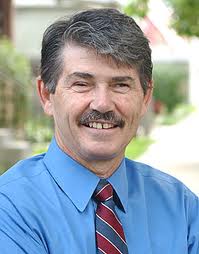David Orr Calls for TIF Moratorium
By Kevin Robinson in News on Nov 24, 2010 2:40PM

Official Photo of David Orr
A product of state legislation, but left to municipal governments to establish and administer, TIFs have been the subject of controversy and debate in the last few years, thanks to Joravsky's stellar reporting at the Reader. Intended as a way to combat blight in areas that might not otherwise attract private investment organically, critics charge that they have become just another way for cities like Chicago to maintain a separate set of books, with city officials using the funds for any pet project that crosses their path. Historically, the city's Community Development Department has created new TIF districts annually. Unsurprisingly they don't seem keen on scaling back the program. “TIFs are created and the funds generated by them are used to build and repair roads, infrastructure and sidewalks, create parks and open space, put vacant properties back to productive use and build affordable housing, usually in conjunction with private development projects,” Community Development Department spokeswoman Molly Sullivan told the Tribune.
The first TIF in Chicago was created in 1984 at the urging of Harold Washington. The Central Loop TIF was established to spur development of Block 37. The bulk of that funding, however, went to build Millennium Park. In his most recent (and final) budget, Mayor Daley refunded a "surplus" of TIF funds back to the schools to cover a financial shortfall. And with a plethora of candidates vying for the newly open seat of mayor, TIFs have become a campaign issue. Several candidates have mentioned that they would like to use TIF funding to fix city schools or to spur job creation in Chicago. Whether any candidate will heed Orr's suggestion remains to be seen.